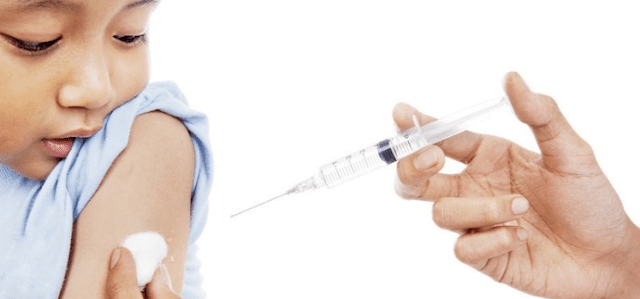How to Care for a Child with Chickenpox-Pediatric Guide
Chickenpox is a viral infection caused by the varicella-zoster virus. It is a contagious illness that affects children. It is characterized by an itchy, red rash that leads to fluid-filled blisters that result in fever, fatigue, and loss of appetite.
Here are the guidelines for how to care for a child with chickenpox shared by Dr. Promilla Butani, a leading Senior General Pediatrician in Delhi:
1. Isolate the Child: It is the primary method to prevent the spread of the virus. It can spread through direct contact or via air droplets while sneezing or coughing with the infected person. It is necessary to isolate the child for about 10–15 days until all the blisters are clustered. Pediatricians recommend parents not to send their children to school, daycare, or other public places. Isolation prevents the virus from spreading and reduces the risk of complications in pregnant women, newborns, and people with systems. It is advised to handwash frequently and disinfect surfaces and other items like combs, utensils, and towels.
2. Managing Itchiness and Discomfort: Itchiness and red rashes are the common symptoms that cause discomfort. It is necessary to manage itchiness and prevent risks and complications. It can be managed by using antihistamines prescribed by pediatricians. It is essential to take the correct dosage of medicine. Applying calamine lotion or colloidal oatmeal soothes the skin, moisturizes the skin, and a lukewarm bath with baking soda reduces the itching. Wearing soft, light clothes also minimizes irritation.
3. Ensuring Hygiene: Ensuring hygiene plays a significant role in managing chickenpox in children. Good hygiene practices prevent secondary infections. Hygiene practices like washing the hands frequently with soaps after using the washroom, bathing with lukewarm water, using clean towels, utensils, and bedsheets, disinfecting the surface, and avoiding scratch rash. It is necessary to educate people about chickenpox. Hygiene prevents transmission and safeguards health.
4. Facilitating Hydration: To support hydration during chickenpox is a significant role in the recovery of children. Fever causes discomfort, leading to fluid loss. Drinking water regulates the body's metabolic rate and maintains the fluid level. It is necessary to avoid sugar drinks as it contributes to dehydration. Pediatricians suggest drinking small amounts of fluid frequently throughout the day. It prevents dehydration that causes weakness. It heals the body naturally and shows fast recovery.
5. Manage Fever: Dr. Promilla Butani, a Pediatrician in Delhi advised to manage the fever as it causes discomfort and risk associated with chickenpox. High fever is a common symptom of chickenpox that makes the child irritated. Pediatricians prescribe certain reduced fevers such as acetaminophen and ibuprofen for relief from fever by lowering the body. Acetaminophen reduces fever and relief from pain. Ibuprofen reduces inflammation. It is necessary to give medicine in the right proportion as recommended by the child's doctor as they provide it based on the child's age and weight. Pediatricians monitor a child's fever regularly and intake fluid frequently to prevent dehydration.
6. Observe Complications: It is necessary to monitor complications in children with chickenpox. It plays a crucial role in the treatment of chickenpox. It causes itching due to bacterial infections in the skin, persistent high fever, headaches, weakness, difficulty breathing, and vomiting. Children become irritated and feel discomfort. It is crucial to consult with the pediatricians immediately to prevent secondary infection. They examine the child's condition and diagnose the problem by certain tests. Regular checkups and hygiene approaches minimize the problem and facilitate fast recovery.
7. Vaccination: Vaccination is the most powerful treatment against chickenpox. It reduces the risk of complications and challenges in the future. Chickenpox is caused by the varicella virus. Therefore, the varicella vaccine is given to children at 12–15 months of age. The second dose should be given at the age of 4–6 years. It protects children from the varicella virus. It plays a vital role in community immunity, which refers to the individuals who are not vaccinated for some reason, also protected because of the maximum number of vaccinated children. This is the best way to control chickenpox in children.
8. Consult with Pediatricians: Pediatricians role in the treatment of chickenpox is very important. They assess the children's condition, check the severity of the chickenpox, and evaluate the child's health. Chickenpox causes persistent high fever, difficulty with breathing, or severe rashes. They provide certain medications to improve the child's health. They suggest the children be isolated until the blisters are clustered. They advised us to follow hygiene approaches for quick recovery.
9. Educating the Child: The child's and parents' education are important in managing chickenpox. Pediatricians guide about how chickenpox affects the body, the safety measures, precautions, and vaccination to prevent chickenpox. It also explains basic hygiene practices such as the utilization of clean utensils, towels, and bedsheets. It makes the recovery smoother.
If one child is suffering from chicken pox and this condition is affecting their overall health it is important to consult a General Pediatrician in South Delhi like Dr. Promilla Butani. She is a senior child specialist and provides treatment and guidelines for all types of kids and child-related health concerns.




Comments
Post a Comment